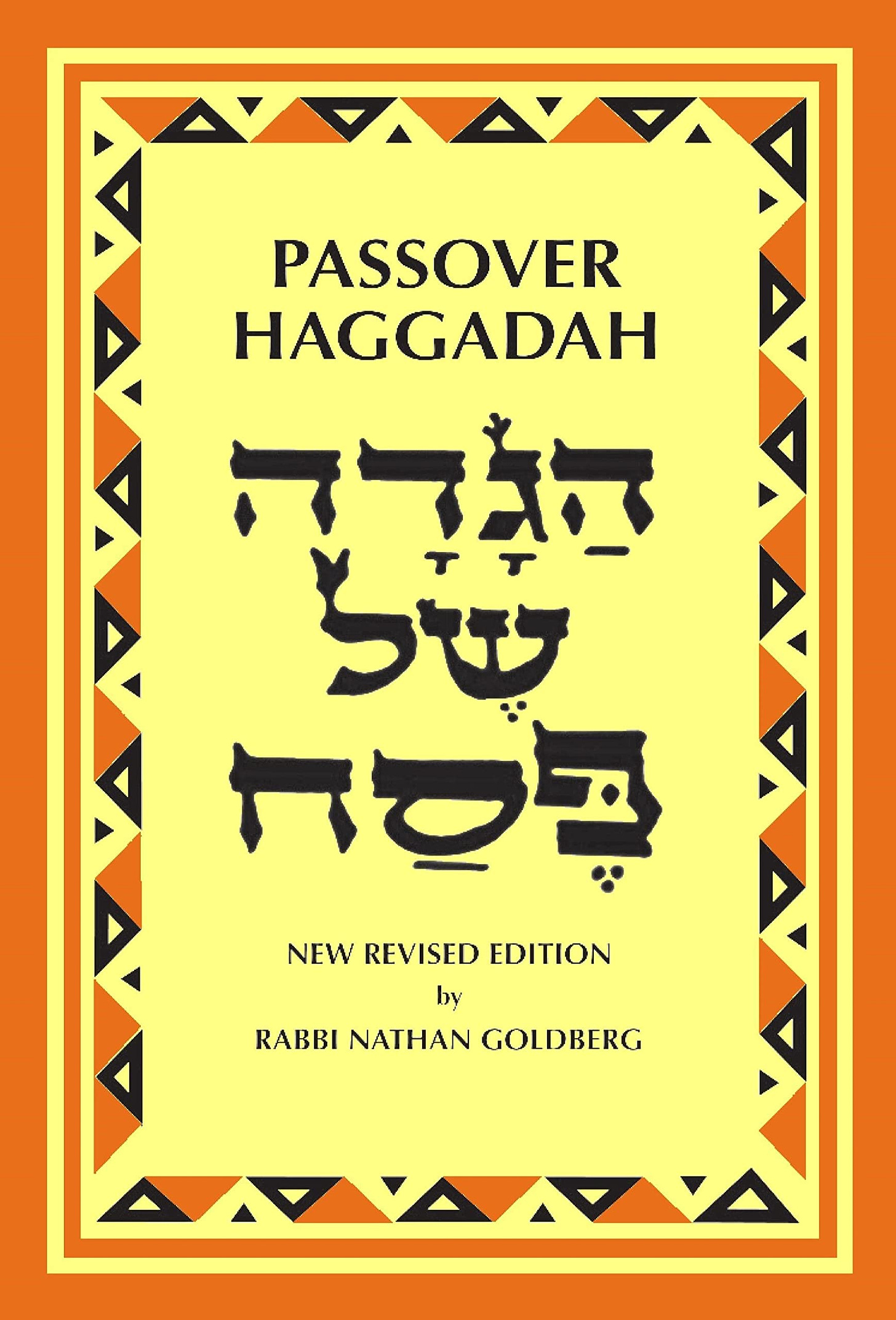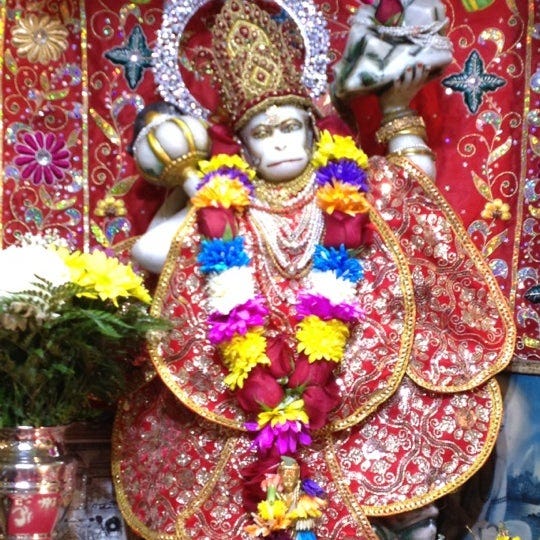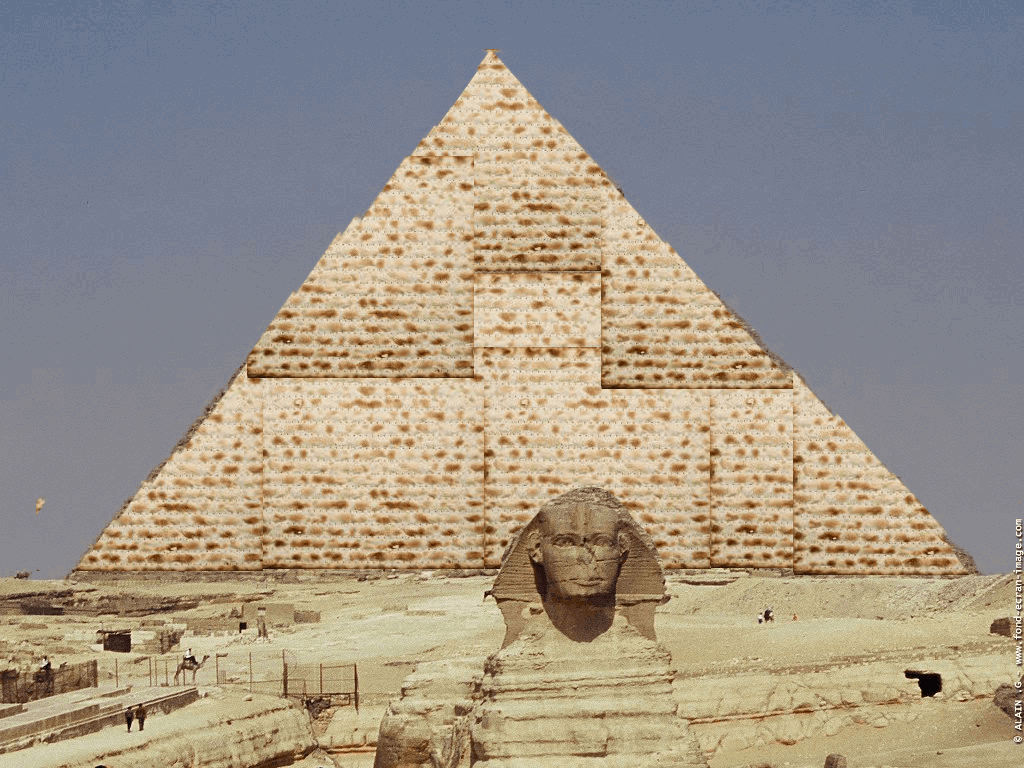I posted this essay last year at about this time. But since I now have five times as many subscribers as I did then, I’m guessing most of you haven’t read it, and if you have, it might make for a pleasant re-read. I hope you enjoy it.
All my life, Passover has been my favorite holiday. In addition to carrying the theme of almost all Jewish holidays (they tried to kill us, we won, let’s eat), Passover is a festival of liberation. Many bittersweet memories of my childhood and adolescence are bound up in Passover Seders. The Seder, which includes “the festive meal” following a lot of ritual storytelling, is special to me in ways for which I don’t really have words.
See how I managed not to end that sentence in a preposition? That’s some high-quality writing there!
More than two decades ago, after meeting our Guru, Lillian and I began celebrating Hanuman Jayanti, a Hindu holiday that coincides with the beginning of Passover. I was going through a period of trying to reconcile two belief systems that didn’t need reconciling. In 2000, I wrote a piece for a publication called Shakti that decided not to run, even though the editor and I both thought it was pretty good. I’m presenting it here.
April, 2000
It's midnight on the first night of Passover. Jews all over the world have spent the evening celebrating the Exodus from Egypt by gathering around dinner tables for the Seder, retelling the old story, singing songs, and stuffing themselves. This Jew is sitting on the floor in the Sri Hanuman Mandir in Hempstead, New York, at the beginning of an all-night chant to celebrate Hanuman Jayanti, the birthday of Lord Hanuman, monkey-god and servant of Lord Rama. How in the world did I get here? Am I content? And what would my mother have thought?
First of all, I'm going to a Seder tomorrow, on the second night. It’s not my grandfather’s Seder; this Seder is always more of a dinner party than a religious observance; we race through the reading to get to the eating… and we never finish the service. These people mean well, but I'm a man who prefers more spirituality in my religious festivals.
Second, Hanuman is my favorite form of the Divine. He's strong, brave, loyal, handsome, and intelligent, and he has a tail. What more could anyone want in an object of worship?
Third, and most importantly, I haven't felt quite like this since I was a child in the synagogue. An air of mystery mixed with a strange sense of familiarity, the expressions of peace and hope and faith on the faces of the congregants, and the separation of the men's and women's sections.
Obviously, there are significant differences between Hindu and Jewish temples. We have no statues or paintings in synagogues, and we have seats. Here at Sri Hanuman Mandir, as in Hindu temples around the world, we sit on the floor. On the altar is a big statue of Hanumanji, surrounded by tiny blinking "Christmas" lights. The walls have paintings and carvings of Hanuman, Lord Rama, and Rama's wife, Sita. There are statues of other deities as well.
We begin the chanting of 108 repetitions of the Hanuman Chalisa. The Hanuman Chalisa comprises forty verses in a Hindi dialect written by the poet-sage Tulsidas sometime around 1620 A.D. At the speed that this group chants, starting at midnight, we'll be done at about 4:30 a.m. If I were doing it alone, it would take at least six hours. The chanting will be followed by a circle folk dance called a 'Garba', and at sunrise by a havan (fire ceremony) accompanied by the recital of the Sundarkand, a section of the epic Ramayana that describes the brave and noble acts of Hanuman. A long night indeed, and I'm eagerly anticipating the experience.
One of the verses of the Chalisa translates to One who recites this (Hanuman Chalisa) one hundred times daily for one hundred days becomes free from the bondage of life and death and enjoys the highest bliss at last…
I wonder if that would work. I know it’s been done. I know people who have done 10,000 Hanuman Chalisas in the prescribed hundred days. I wonder if doing it for one night will get me one percent of the way there. I conclude that these things don't matter right now. I'm going to do one hundred and eight repetitions tonight. As Lord Shankar witnesses, all those who recite Hanuman Chalisa regularly are sure to be benefited…
I look around the room at the other celebrants. All are Indian except for my wife, myself, and three other people. Although we were here for Hanuman Jayanti last year, I have a vague sense of being out of place, a stranger in a strange land. Wherever this hall may be physically, I don't feel as if I'm on Long Island or in America. At the same time, I'm oddly comfortable. I know that I'm welcome here. I realize that I feel that blend of displacement and comfort in almost every house of worship, no matter what faith or denomination.
The first few times, the Chalisa is chanted at a brisk pace. There are two men drumming to keep the beat of the chant. I know the Hanuman Chalisa by heart, and I can keep up and look around the room, but after the first three or four, it's lightspeed. Rapidfire chanting has the effect of sharpening my mind and limiting my thought. Keeping up the pace consists of staying tightly focused on trying to pronounce the Hindi words, staring at the transliterated text I'm holding in front of me, and sometimes reciting a portion silently just because my lips can't keep up. This puts me in a strange state, meditative yet keyed up… and I know I'll be like this for hours.
After an hour or so, I find I can keep up with the chanting without being quite as mindful, and I remember again that this is the first night of Passover. I start to make connections between the two celebrations…
Deliverance. Passover is a remembrance of the deliverance of my people from Egyptian bondage. Hanuman helped deliver the captive queen Sita from the hands of the evil demon-king Ravana. Chanting the Hanuman Chalisa helps deliver the devotee from fear and serves as protection. By your grace, one can enjoy all happiness, and one need not have any fear under your protection.
I am brought back to focus on the actual chanting as we've gotten even faster. But it's not difficult, even though it's the middle of the night, and I've lost count of how many we've done and how many remain. My mind seems sharp and clear, my heart beats peacefully… All the difficult tasks in the world are rendered easiest by your grace…
I notice that some people have piles of almonds near them and are using them to count repetitions. I try to look over one man's shoulder to see how far we are from finishing. I think there are only nine or ten almonds left. I'm energized and exhausted, the way I used to feel after an all-nighter back in college, feeling like I can do anything – as long as I don't lie down.
The rituals of faith are all valid. The teachings of Sanatana Dharma tell us that we are all on the path to Godhead and that after however many lifetimes, we will all reach the goal. Rituals of remembrance, regardless of tradition, all serve to remind us of divine glory, whether the ritual is the recounting of Hanuman's bravery and goodness or the retelling of God's miraculous deliverance of the Hebrews from the land of Egypt.
When we get to the last few repetitions, the pace of the chanting slows, and we all begin to sing the Hanuman Chalisa. The melody is bright and peppy, though we walk in a slow circle, clapping to the rhythm. Some of the women form an inner circle and begin the Garba dance. Although we are all weary, everyone seems to be smiling with the joy of celebrating Hanumanji's special day. When the dance is over and all the repetitions are done, we sit down once again on the floor. Under the direction of this temple's leader, called Guru Maa by her disciples, one Western element is added to the celebration as we all sing:
Happy Birthday to You, Happy Birthday to You, Happy Birthday, Lord Hanumanji, Happy Birthday to You.
My wife and I decide not to stay for the fire ceremony this year. We're as physically drained as we are spiritually uplifted, and we need to get some sleep before the long drive to the Seder in the evening. I feel content and centered. Although I may practice the rituals of several faiths, I know that the Divine responds to us through all of them. And having spent the night in contemplation of both the Passover holiday and the aspect of God that is Hanuman, I'm ready for a secularized Passover Seder dinner party (with a mighty hand and an outstretched arm).
Happy Pesach, Happy Easter, Happy Hanuman Jayanti, and an easy Ramadan fast. I hope I’m not leaving anyone out (the Baha’i fast was weeks ago).
If you enjoyed reading this post, please click the little heart button at the bottom. If you really liked it, please share it with others.
If you’re becoming a fan of I’m Not Complaining, please consider taking a paid subscription to support my work as a writer.








Beautiful. I love that you found the commonalities in these religions and holidays. I also prefer the spirituality and never understood why some rabbis espouse politics in the pulpit. Our kids had their B’nai Mitzvah in Israel. Spending thousands on a catered gig with professional dancers for a bunch of 13 yos didn’t sit well. I have been to very spiritual Seders— thru the Chabad and once with a bunch of Israelis. Those were my favorite. Happy Passover and Hanuman Jayanti. 🙏
Very heatwarming!!!😘🌹